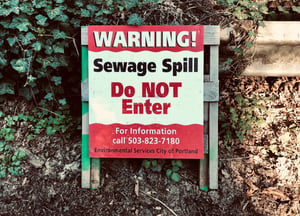The word ‘essential’ when describing an employee or business has become an iconic phrase associated with the COVID-19 pandemic. Some non-essential businesses have temporarily closed or found alternative ways to provide services to their customers by observing social distancing. But other businesses are deemed essential and must stay operable during the crisis, providing necessary services to communities including healthcare, law enforcement, transportation and the water and wastewater industry.
 OSHA recently released a guide to help wastewater personnel better understand COVID-19. According to The Occupational Safety and Health Administration (OSHA), the wastewater industry should follow protocols similar to the healthcare industry when carrying out hand washing, disinfecting and practicing social distancing. Treatment Plant Operator magazine reports that wastewater professionals are still maintaining normal operations while wearing proper PPE, and are asked to follow routine protocols and procedures to prevent exposure to untreated wastewater.
OSHA recently released a guide to help wastewater personnel better understand COVID-19. According to The Occupational Safety and Health Administration (OSHA), the wastewater industry should follow protocols similar to the healthcare industry when carrying out hand washing, disinfecting and practicing social distancing. Treatment Plant Operator magazine reports that wastewater professionals are still maintaining normal operations while wearing proper PPE, and are asked to follow routine protocols and procedures to prevent exposure to untreated wastewater.
Water and wastewater personnel are playing a critical role during this time of crisis. “Water professionals are doing heroic work to keep water flowing, and that ensures that citizens stay hydrated, wash their hands and prevent the spread of COVID-19,” says American Water Works Association CEO David LaFrance, in a recent article from WaterWorld magazine. Likewise, wastewater services are essential to public health, protecting communities and the environment by isolating sanitary waste that contains a wide array of pathogens. For these reasons, water and wastewater industry employees, departments, and the vendors that support them are all considered essential.
For their own health, and so they may continue to serve communities without interruption, it’s especially imperative for essential services personnel to follow government-recommended health and hygiene procedures. These include washing hands frequently, using hand sanitizer when soap and water are not available, avoiding large gatherings in the workplace, practicing social distancing, refraining from carpooling, and sanitizing working stations between shifts. By doing so, workers in industries like ours can do the heroic work of protecting communities—while also protecting themselves.
